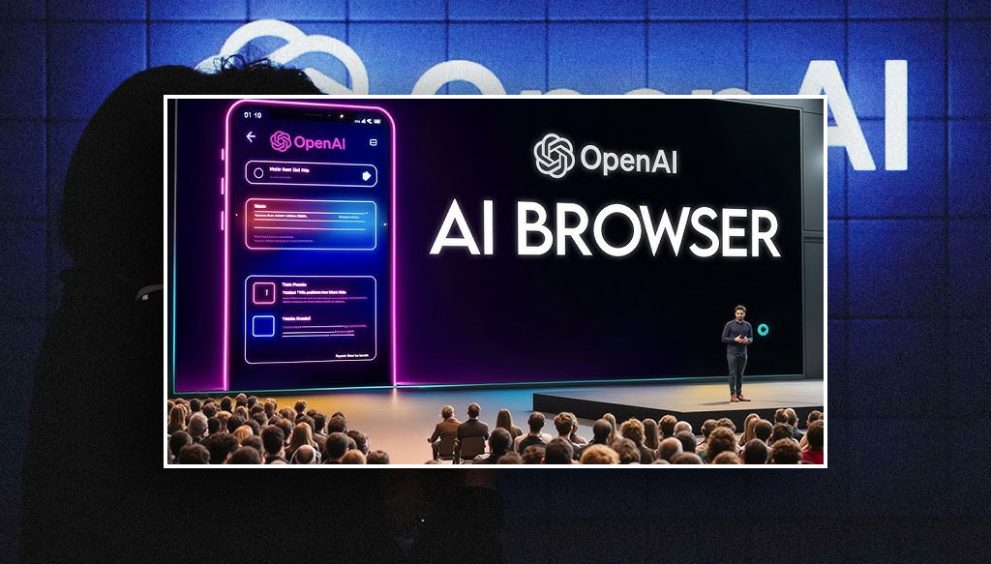OpenAI’s AI-Powered Web Browser: A Game-Changer to Rival Google Chrome

In a bold move to redefine how we interact with the internet, OpenAI is set to launch its AI-powered web browser, poised to challenge Google Chrome’s dominance. Built on the open-source Chromium engine, this browser promises to transform the browsing experience with cutting-edge AI integration, seamless automation, and a user-centric approach. With over 500 million weekly active ChatGPT users potentially adopting this browser, it could shake up the market, which Chrome currently leads with a 67% share. Here’s a deep dive into the features that make OpenAI’s browser a must-watch for tech enthusiasts, as covered by NRIGlobe.com.
Key Features of OpenAI’s AI-Powered Web Browser
1. ChatGPT-Like Conversational Interface
Unlike traditional browsers that rely on clicking through websites, OpenAI’s browser introduces a native chat interface inspired by ChatGPT. Users can interact with the browser through natural language queries, reducing the need to navigate multiple tabs or websites. For example, instead of visiting several travel sites to book a flight, you can simply ask the browser to “find the cheapest flights to Paris next weekend,” and it will handle the search and present results within the interface. This streamlined approach saves time and enhances user experience.
2. Integration with Operator AI Agent
The browser integrates OpenAI’s Operator AI agent, a powerful tool designed to automate tasks. From filling out forms to booking reservations or summarizing web content, Operator acts as a virtual assistant embedded in your browsing experience. Imagine asking the browser to “reserve a table for two at an Italian restaurant tonight” or “summarize the latest tech news”—Operator handles it seamlessly, minimizing clicks and manual effort. This feature positions the browser as a productivity powerhouse.
3. Chromium-Based Compatibility
Built on Google’s open-source Chromium engine—the same foundation as Chrome, Microsoft Edge, and Opera—OpenAI’s browser ensures compatibility with existing web standards. Users can expect a familiar browsing experience with support for modern web technologies, extensions, and rendering capabilities, but with the added advantage of AI-driven enhancements. This makes it a viable alternative for Chrome users looking for a smarter browsing solution.
4. AI-Driven Task Automation
OpenAI’s browser takes automation to the next level. Whether it’s scheduling appointments, comparing product prices, or managing browser tabs, the AI can execute tasks on your behalf. For instance, the browser can automatically compile a list of the best deals on a product across multiple e-commerce sites or organize your tabs based on relevance. This feature is a game-changer for professionals and casual users alike, reducing repetitive tasks and boosting efficiency.
5. Enhanced Privacy and Data Control
Unlike Chrome, which funnels user data to fuel Google’s ad empire, OpenAI’s browser aims to give users more control over their data. While it collects browsing data to enhance AI functionality, OpenAI has emphasized building a standalone browser to maintain autonomy over how data is used, rather than relying on third-party plug-ins. This focus on privacy could appeal to users wary of Google’s extensive data harvesting, though OpenAI’s exact data policies remain under scrutiny.
6. Seamless Integration with OpenAI Ecosystem
The browser is designed to weave OpenAI’s services into everyday browsing. With deep integration of ChatGPT and potential future support for OpenAI’s hardware ventures (like the $6.5 billion acquisition of Jony Ive’s AI device startup, io), the browser acts as a hub for OpenAI’s growing ecosystem. This could mean syncing AI-driven insights across devices, from your phone to a potential OpenAI-powered gadget, creating a cohesive user experience.
7. Content Summarization and Smart Search
Say goodbye to scrolling through lengthy articles. The browser’s AI can summarize web pages, extract key points, and answer questions directly within the interface. For example, searching “What are the benefits of electric cars?” could yield a concise summary drawn from multiple sources, without requiring you to visit each site. This feature, combined with smart search capabilities, makes information retrieval faster and more intuitive.
Why OpenAI’s Browser Could Challenge Chrome
Google Chrome’s dominance, with over 3 billion users and a 67% market share, is largely due to its role in collecting user data for targeted advertising, which accounts for nearly 75% of Alphabet’s revenue. OpenAI’s browser, however, threatens to disrupt this model by offering a more engaging, AI-driven experience that keeps users within its ecosystem. If even a fraction of ChatGPT’s 500 million weekly users switch, it could dent Chrome’s data pipeline and challenge Google’s ad-driven revenue model.
Moreover, OpenAI’s browser enters a competitive landscape where other AI-powered browsers, like Perplexity’s Comet and Brave, are also vying for attention. Unlike these, OpenAI’s offering leverages its massive ChatGPT user base and Operator’s advanced automation, giving it a unique edge. Posts on X highlight the excitement, with users like @CryptoPatel noting, “This could change how we use the internet forever,” and @AlvaApp calling it a “legit paradigm shift.”
The Road Ahead for OpenAI’s Browser
Set to launch in the coming weeks, OpenAI’s browser faces a steep climb against Chrome’s entrenched position. However, its AI-first approach, built on Chromium’s reliable framework, positions it as a formidable contender. The browser’s ability to automate tasks, summarize content, and provide a conversational interface could redefine how we interact with the web, making it a compelling choice for tech-savvy users and businesses alike.
As OpenAI continues to innovate—evidenced by its recent hardware ventures and hiring of ex-Google Chrome VPs—it’s clear the company is playing the long game. Whether it can sway users from Chrome’s grip remains to be seen, but one thing is certain: OpenAI’s browser is set to make waves.
Stay tuned to NRIGlobe.com for updates on OpenAI’s browser launch and its impact on the tech landscape. Will you switch from Chrome to OpenAI’s AI-powered browser? Let us know in the comments!













